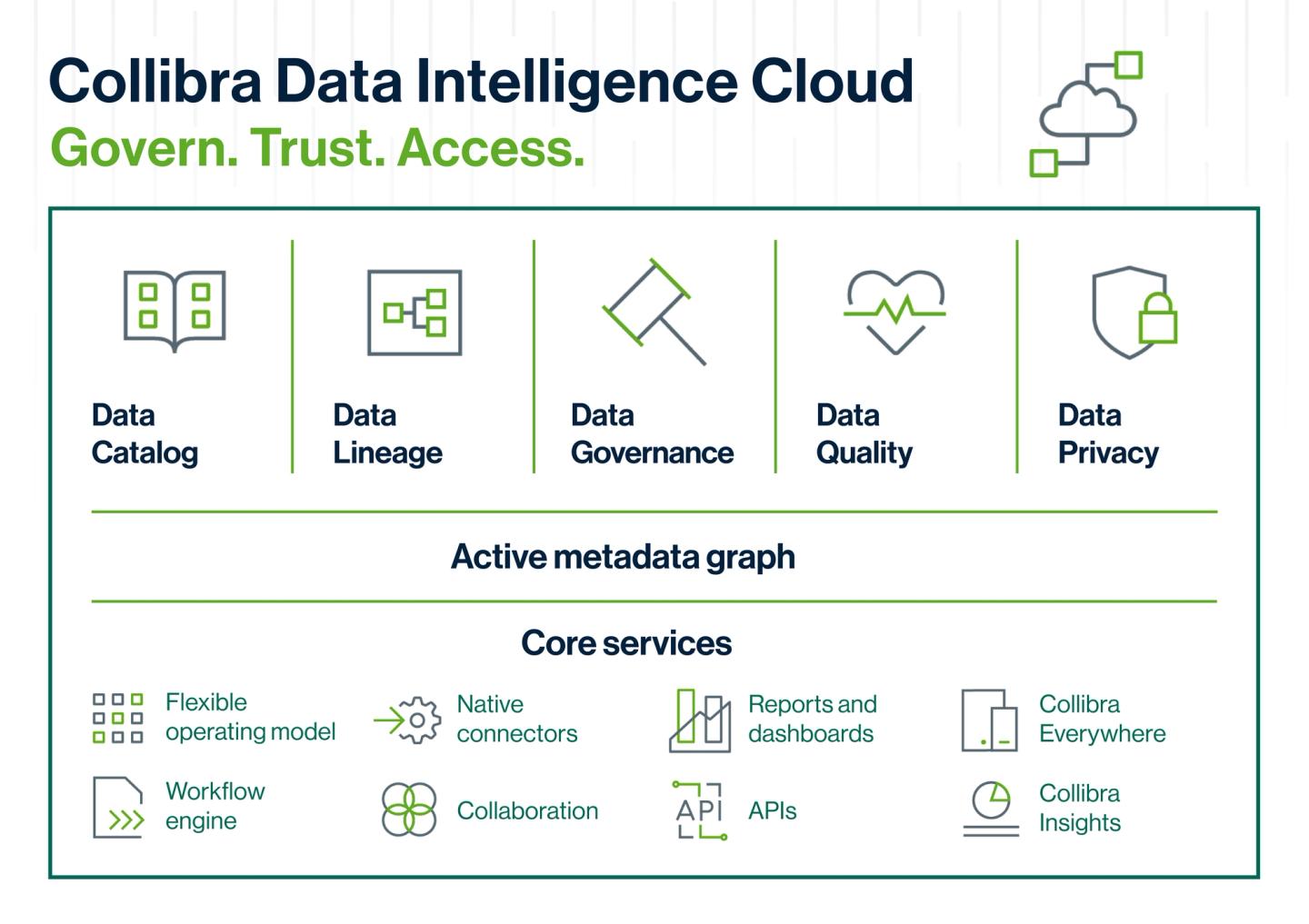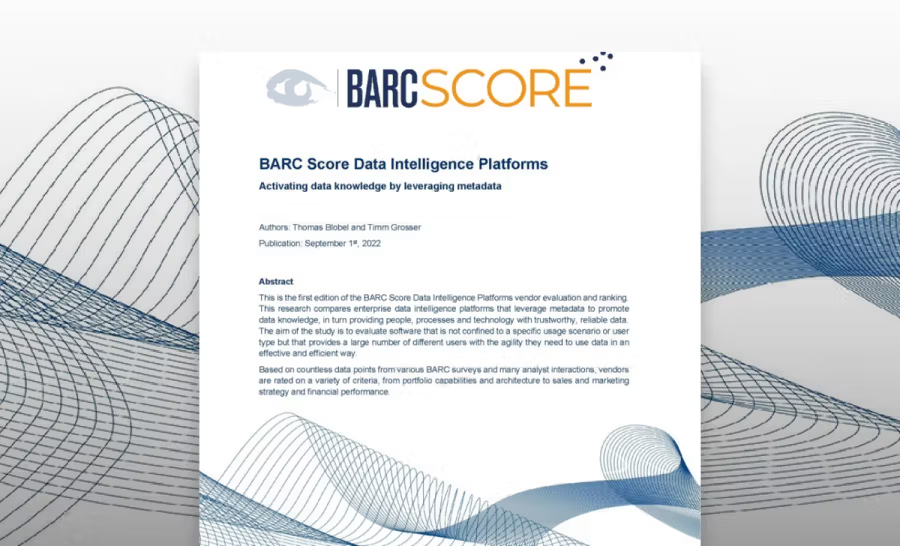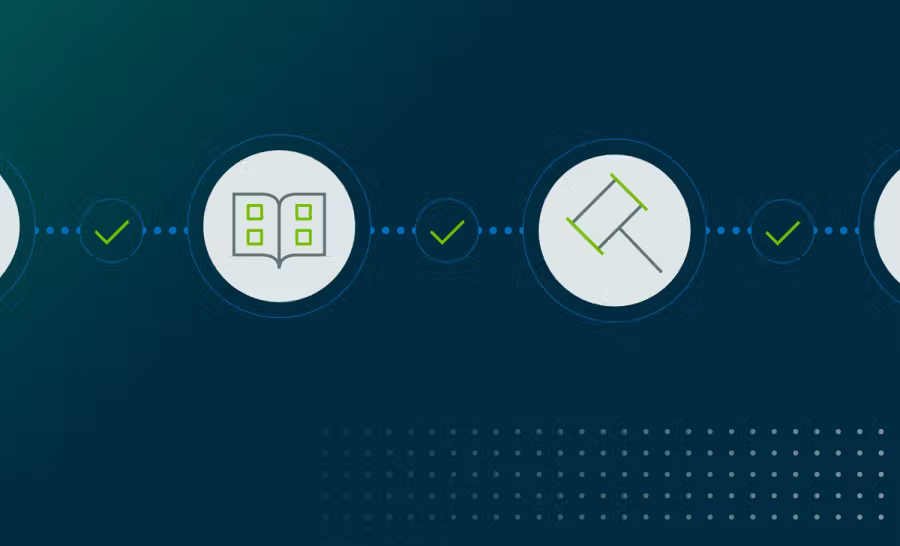Why modern data management and governance is essential in energy and utilities

The energy and utilities sector is primed for unprecedented disruption through innovation over the next five years. A culmination of macro trends and business imperatives are fueling this shift including:
Global move towards decarbonization
Across the globe, there is a concerted effort to decarbonize the energy system. Energy and utilities providers are increasingly pledging ambitious net-zero emission targets. Environmental, Social and Governance (ESG) is quickly becoming a boardroom and CEO level priority across industries including the energy and utilities sector.
ESG requires energy and utilities providers to establish detailed metrics and controls, aggregate ESG data from across the enterprise, track and analyze progress against ESG goals and provide regular ESG disclosures in the form of reports and dashboards with comprehensive audit trails. This helps drive greater transparency, accountability and auditability. This entails enacting a robust data management strategy that includes data cataloging, governance and data quality. For instance, having access to trustworthy and high-quality data is critical in ESG reporting so that organizations can deliver accurate measurement of their carbon footprint and various KPIs towards sustainability goals.
Changing consumption patterns and consumer demand
A shift in consumer sentiment, energy consumption patterns and growing pressure from policymakers is a catalyst for energy and utilities providers to diversify their business by adding renewable energy options to their product portfolio and implementing new business models. Consumers, businesses and governments increasingly want cleaner, more sustainable and eco-friendly options.
According to Accenture, putting people at the heart of the energy transition will be key. This will, in part, require providing customers with solutions that protect the environment as well as arming employees with high-quality data and self-service analytics to derive accurate insights in real-time. Additionally, IDC predicts that 80% of the global energy suppliers will make customer engagement a top priority to deliver personalized experiences and offers. This will further require rapid access to data that’s fully governed for use.
Volatile markets, environmental and geo-political risks
Over the past three years, the culmination of a volatile market, environmental, climate, geo-political risks, supply and demand challenges coupled with a global pandemic have propelled enterprises across the industry to increase their investments in modernizing their ageing, legacy infrastructure.
It is predicted that over 60% of energy and utilities providers view data, cloud, analytics and artificial intelligence (AI) as central to their growth and modernization strategy. In fact, digital transformation is pivotal to their survival. It will help them better navigate an increasingly volatile and complex environment resulting in:
- Improved agility and business resiliency
- Greater operational efficiencies
- Faster time-to-market
- Ability to drive innovation at an accelerated pace
Changing regulatory framework
The regulatory landscape is constantly evolving as policymakers and governments globally respond to climate and environmental challenges. Regulatory initiatives – from NERC CIP compliance, CCPA, GDPR to UK Bribery Act, US Foreign Corrupt Practices Act (FCPA), and more –require energy and utilities providers to comply with strict regulatory stipulations that necessitate greater governance, transparency, accountability and auditability. One of the biggest challenges for energy and utilities providers when it comes to regulations is inconsistent reporting, inability to find the data they need or validate it for reporting purposes.
For instance, regulators and auditors want more than just reports. Increasingly, they require granular details and comprehensive audit trails that demonstrate transparent oversight of data storage, collection, usage, and privacy coupled with lineage. This requires a single repository of truth for all their metadata (data about data) so that data is easily discoverable with detailed attributes about the data.
Cloud migration and data modernization
Energy and utilities providers operate in a highly complex data landscape with zettabyte-scale data spread across hundreds of disparate data sources. Across the industry, enterprises are struggling with rising data volume and data sources. Cloud migration and data modernization have fast become an absolute necessity for energy and utilities providers.
As numerous energy and utilities providers will attest, data is one of their most valuable assets. Ensuring its hygiene, making it easily accessible and deriving value from it will be increasingly critical.
For instance, across the industry, enterprises of all types and sizes are experiencing an unprecedented explosion in data stemming from Internet-of-Things (IoT) devices such as smart meters and sensors. IoT devices support a host of mission-critical applications and use cases including predictive maintenance, asset performance management, energy optimization, connected homes and customer experience management. To extract full value from this data, it needs to be tagged and cataloged so it’s easily discoverable and available for analysis in conjunction with data stemming from other data sources.
How Collibra Data Intelligence Cloud can help
At Collibra, we work with leading energy and utilities providers globally to help them innovate with trustworthy data.
Collibra Data Intelligence Cloud is an intelligent data platform that leverages the power of machine learning and provides a holistic and integrated approach to cataloging, governing, protecting, managing and collaborating with data at scale across on-premises, hybrid and multi-cloud environments.

With Collibra Data Intelligence Cloud, energy and utilities providers can:
- Drive successful cloud migration and data modernization initiatives at an accelerated pace.
- Improve regulatory reporting and transparency with comprehensive audit trails.
- Enable mission-critical applications and strategic business imperatives including ESG, customer experience management, asset performance management, finance, billing, order management, and more.
- Democratize the use of fully governed, traceable and high-quality data throughout the enterprise.
- Empower data producers and consumers including data scientists with the ability to rapidly discover and collaborate with data that’s trustworthy and primed for self-service analytics and AI use.
Next Steps
To learn more, I would like to recommend the following customer webinars and reading material:
- ebook: Data Mesh: don’t drown in your data lake
- Webinar: GRTgaz drives successful migration initiatives with Collibra
- Customer video: Galp uses data governance to transform the energy sector
- Customer video: Engie uses data to optimize availability of renewable energy
- Blog: Data privacy and governance in a landscape of evolving privacy regulations
Related articles

Data IntelligenceJanuary 27, 2022
Accelerate IFRS-17 Compliance with Data Intelligence Platform

Data IntelligenceSeptember 27, 2022
Collibra is a Market Leader in first-ever BARC Data Intelligence Platform Vendor Evaluation

Data IntelligenceOctober 28, 2022
The must-have checklist for maximizing the value of your data catalog and governance investments with Collibra

Data IntelligenceMarch 10, 2022
Improve data literacy and data sharing in government
Keep up with the latest from Collibra
I would like to get updates about the latest Collibra content, events and more.
Thanks for signing up
You'll begin receiving educational materials and invitations to network with our community soon.
